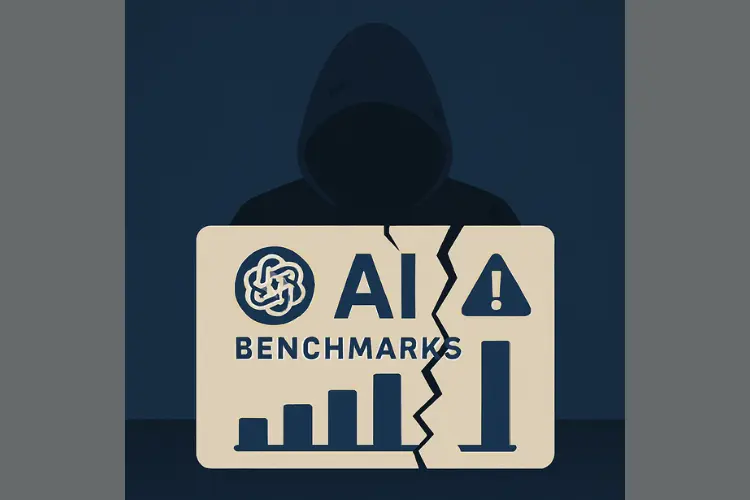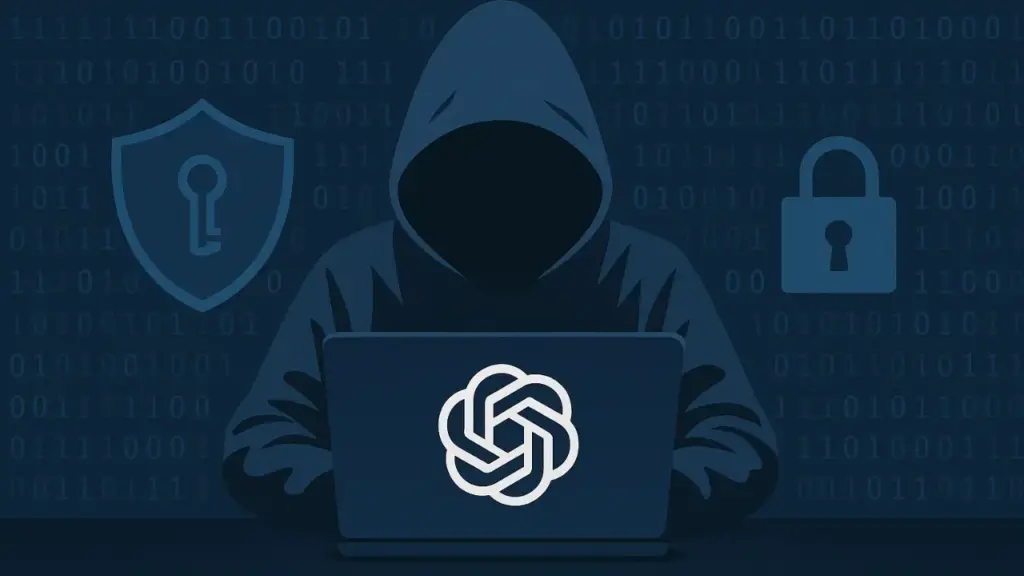Introduction: The AI Privacy Illusion
Imagine this. Every time an employee uses ChatGPT, there’s an 11% chance they’re leaking confidential company data. Surprised? You should be. AI systems like ChatGPT are marketed as intelligent, efficient, and safe. But the truth is far darker.
In reality, AI models are shockingly bad at keeping secrets. Research shows they are more vulnerable to phishing attacks than even the least tech-savvy users. On top of that, 4.7% of employees have already pasted confidential company information into ChatGPT. No wonder enterprise AI adoption remains stuck at a measly 10%.
The AI industry loves selling the dream of privacy and security. But the reality? It’s a data privacy disaster waiting to explode. Let’s explore the cold, hard truth about AI data security—and why it’s way worse than anyone wants to admit.
The Trust Problem: Why Enterprise AI Adoption Is Stuck at 10%
Despite the buzz around AI being a $4 trillion industry, only 10% of enterprises have seriously adopted AI. The reason is simple: no one trusts AI with sensitive data.
Danny Coleman, CEO of Chatterbox Labs, highlights the issue perfectly. He states, “Enterprise adoption is only like 10 percent today… because people don’t trust AI without proper governance and security.”
It’s not that AI lacks potential. Businesses see the value. They understand how AI can automate tasks, boost productivity, and cut costs. But the fear of leaking customer data, financial records, or intellectual property outweighs the benefits.
Coleman further warns, “Traditional cybersecurity teams aren’t prepared for AI’s unique vulnerabilities.” The tools designed to secure traditional systems simply aren’t enough for AI’s open-ended models.
AI’s Dirty Secret: Models Leak Confidential Data
The AI industry pushes a narrative that models are secure. But that’s far from the truth.
A growing body of research shows that AI models can accidentally reveal confidential data. This isn’t just a theoretical risk—it’s happening.
Some models have leaked voter registration information. Others have unintentionally revealed personal details fed to them in earlier conversations. These are not edge cases. They are symptoms of a deeper problem.
CTO Stuart Battersby explains, “Content safety filters and guardrails are not good enough. Don’t trust the vendor’s claims that their AI is safe and secure.”
The fact is, no AI vendor can guarantee that its model won’t regurgitate sensitive data under the right (or wrong) prompt. That’s terrifying for businesses.
Inside the AI Adoption Nightmare: Security > Functionality
Here’s a real-world example that sums up the problem.
When developers at CleanRouter implemented AI features, they quickly realized that the hard part wasn’t building the AI itself. It was figuring out how to secure it. Data governance, access controls, and privacy protocols consumed more time than the AI development.
This is the same story across industries. Companies jump into AI, excited about automation and productivity. But when they try to use AI on real customer data, the security red flags explode.
This leads to what experts call “AI pilot hell.” AI works great in demos with fake data. But the moment you input actual sensitive data—customer information, payment records, contracts—the entire system becomes a liability.
It’s not that businesses don’t want AI. They do. But they can’t trust it with their real-world data. That’s the real reason enterprise adoption lags far behind the hype.
Shocking Research: AI Fails Confidentiality Tests
If you think this is just fear-mongering, think again.
A study by Salesforce uncovered that Large Language Model (LLM) agents have a success rate of just 58% for simple, single-step tasks. When the tasks involve multiple steps, the success rate drops to 35%.
But the bigger concern isn’t performance—it’s privacy.
The study found that LLMs show low confidentiality awareness. In other words, the AI doesn’t really understand the concept of “confidential information.”
Even worse, when developers try to train the AI to be more privacy-conscious, its overall performance declines. It becomes less effective at completing tasks.
The researchers noted, “Making AI more secure often reduces its usefulness.” This is a brutal trade-off for businesses. Secure AI becomes less functional, and functional AI becomes less secure.
This isn’t a rare issue. This is basic business functionality failing when confidentiality matters. And if AI can’t handle sensitive information, how can any enterprise rely on it?
The Hidden Risk: AI Security Benchmarks Are Broken
There’s another dirty secret in the AI industry: current AI benchmarks don’t test for data confidentiality.
Benchmarks focus on how accurate or fluent the AI is—but they ignore how well the AI recognizes sensitive information and protects it. That’s a catastrophic blind spot.
The same Salesforce research team noted, “A significant gap exists between current LLM capabilities and the real-world demands of enterprise use, where data privacy is non-negotiable.”

This is why so many AI tools look great in sales pitches but fail during actual deployment. They were never tested for the kind of data sensitivity that enterprises require.
In short, the AI industry has been optimizing for clever outputs, not for safety.
Conclusion: Should You Trust AI With Your Data?
Here’s the brutal truth: AI isn’t ready for your sensitive data.
The models don’t understand confidentiality. The guardrails don’t stop leaks. And the benchmarks never tested for privacy in the first place.
Enterprises aren’t avoiding AI because it doesn’t work. They’re avoiding it because they can’t trust it with real business data. And they’re right to be cautious.
If you run a company or work in cybersecurity, don’t be fooled by AI vendors claiming bulletproof privacy. Demand better standards, stricter governance, and transparent security testing. Until the AI industry fixes its broken privacy model, trusting these systems is like handing your secrets to a gossip.
At StartupHakk, we dig deeper into the realities behind the AI hype. Whether you’re an entrepreneur, a developer, or a tech leader, you need to stay informed—not just about AI’s capabilities, but about its very real limitations.




